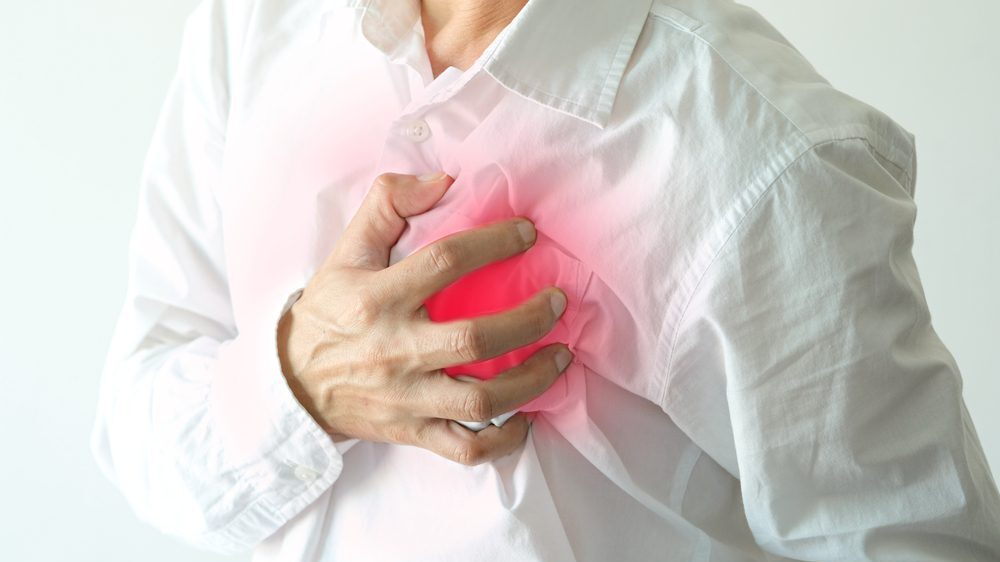
A new study conducted by research scientists from the University of Basel, Switzerland, and the Cardiovascular Research Institute of Basel (CRIB), hypothesized that “COVID-19 mRNA-vaccine-associated myocardial injury following booster vaccination may be much more common, as symptoms may be unspecific, mild or even absent, escaping passive surveillance.”
The study’s research suggests that that hypothesis is correct, as evidence of myocarditis—a potentially fatal inflammation of the heart—was observed in 1 in 35 subjects who received the mRNA COVID-19 vaccine booster, with 1 in 20 showing indications of having suffered some kind of heart injury.
Of the 777 subjects that participated in the study, all of whom were medical professionals (70% of whom were women) at the median age of 37 who received the Moderna COVID-19 mRNA vaccine, 2.8% had elevated cardiac troponin proteins present in their bloodstream three days after receiving the shot, indicating damage to the heart muscle had indeed taken place.
“Our findings confirmed the study hypothesis. mRNA-1273 booster vaccination-associated elevation of markers of myocardial injury occurred in about one out of 35 persons (2.8%), a greater incidence than estimated in meta-analyses of hospitalized cases with myocarditis (estimated incidence 0.0035%) after the second vaccination,” the research scientists wrote.
As the Canadian Catholic LifeSiteNews reported:
Previously it was maintained by health authorities—such as the U.K.’s Medicines and Healthcare Products Regulatory Agency (MHRA)—that such injuries from the COVID “vaccines” affected only one in 666, or 1,500 cases in every million receiving the injections.
The worrying findings of the study, titled “Myocardial Injury after COVID-19 mRNA-1273 Booster Vaccination,” have been published in the international, peer-reviewed European Journal of Heart Failure, which is the open-access journal of the Heart Failure Association of the European Society of Cardiology.
Given that the study was “industry independent,” meaning it was financed and conducted by organizations and research scientists who are not linked to COVID-19 vaccine manufacturers, its findings are considered more credible than industry-dependent studies.
Furthermore, this study—a “prospective active surveillance study”—actively monitored research participants over a period of 30 days following the administration of the vaccine to evaluate the existence of a heart injury. According to Dr. John Campbell, who has a Ph.D. in nursing, most past studies examining vaccine-associated heart injury have been “retrospective passive surveillance studies,” which rely on passive reporting of events to provide insights, and are therefore less reliable as they often miss all but the most serious cases.
Research scientists involved in the study write:
Due to waning immunity months after mRNA COVID-19 vaccinations there is an apparent need for (repeated) booster vaccinations for billions of people worldwide.
Thus knowing the true incidence of mRNA vaccine-associated myocardial injury is of major importance for informed decision-making by patients, physicians and public health authorities.
Calling attention to the fact that there is currently no data on the long-term effect of COVID-19 vaccines on the heart, the study’s researchers note:
Further studies are needed to assess the impact of mRNA vaccine-associated myocardial injury on the long-term risk of cardiac arrhythmias and heart failure.
Presently, it remains entirely unclear just how common mRNA COVID-19 vaccine-associated heart injuries are, and whether the injuries are long-lasting.
If regulators fail to take the study’s findings into consideration, Dr. Campbell said: “They are at best negligent and at worst … I don’t even want to think about it.”
Speaking about the 2.8% of people (1 in 35) who received the booster shot that had vaccine-associated heart injury, Dr. Cambell called the percentage of recorded adverse reactions “off the scale in healthcare,” before pointing out that COVID booster shots are still being actively promoted in places like New Zealand.
“The only way you would take this kind of risk in healthcare is if the alternative was certain death,” he said, adding that he and other healthcare professionals look forward to “an immediate and urgent response from regulators around the world.”
“If we don’t get it, then they just hold themselves up to public mockery and ridicule. What are they there for if they don’t act on this immediately,” he concluded.
One of the study authors, Dr. Christian Mueller, head of Clinical Research and Stationary Cardiology at University Hospital Basel, responding to Dr. Campbell’s analysis said,
Unfortunately, even now in Summer 2023 it seems difficult to have a balanced discussion on this side effect [myocardial injury]. Some people as the ones you cite [Campbell] massively exaggerate, others completely ignore it. Clearly, both reactions do not seem appropriate from my perspective. This research should help and will help manufacturers in the formulation of even safer vaccines by avoiding or at least reducing the prevalence of this side effect.
